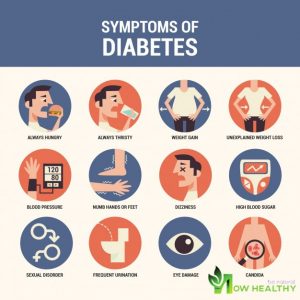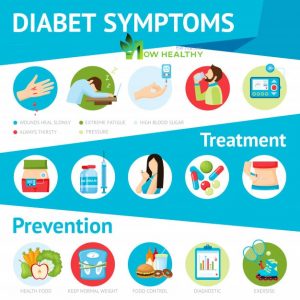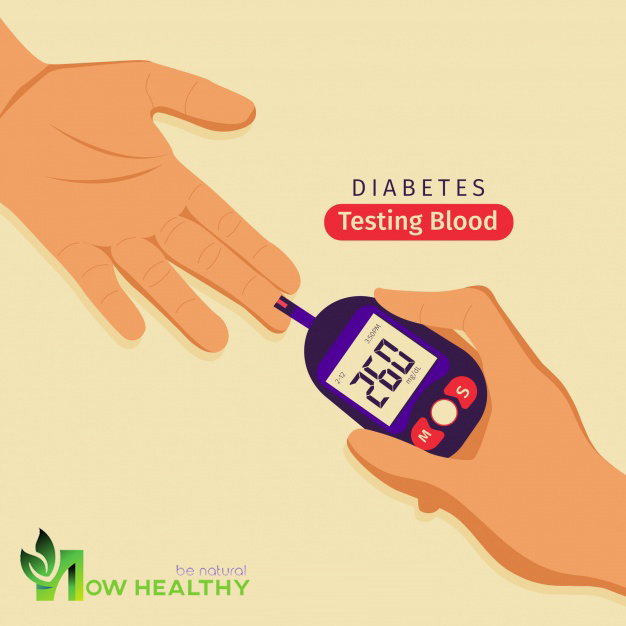What is Diabetes? Signs & Symptoms, Prevention
What is Diabetes?
Diabetes is a group of metabolic disorder which occurs due to high level of sugar in blood. It affects almost the entire body.
Diabetes occurs either the Pancreas do not produce insulin or the cells do not respond to Insulin.
Whatever a person eats, it breaks down into glucose (a form of sugar) in the blood which is “The Fuel of body”. A person having family history of Diabetes is more prone to suffer from this disorder.
There are mainly 3 types of diabetes–
- Type 1
- Type 2
- Gestational diabetes.
Type 1 Diabetes:-
- In this type, body does’nt produce enough insulin.
- It results from failure of Pancreas to produce enough insulin due to loss of Beta cells.
- This type is also known as Insulin-dependent Diabetes Mellitus (IDDM).
Type 2 DIABETES:-
- In this type patient develops Insulin resistance.
- Cells fail to respond to insulin.
- This diabetes is controllable.
- Patient can control by following a healthy diet, regular exercise and monitoring their blood sugar level.
- Obese and overweight people have high risk of type 2 Diabetes.
Gestational Diabetes:-
- This type of diabetes is among pregnant women without diabetes history. It affects females during pregnancy.
- Some women have high level of blood glucose by which they are unable to produce enough insulin.
- They are unable to transport all of the glucose to the cells which results in high level of glucose.
- Women having gestational diabetes have a risk during childbirth.
Signs & Symptoms:-

- Frequent urination
- Increase in Hunger
- Increase in thirst
- Weight gain or weight loss
- Tingling sensation in hand and feet
- Nausea or vomiting
- Lethargy
- Skin problems
- Yeast infection
- Itching
- Fatigue or weakness
- Slow-healing wounds
- Altered mental status
Complications of Diabetes:-
- Diabetic Retinopathy
- Diabetic Neuropathy
- Diabetic Retinopathy
Diabetes Prevention:-

- Exercise & Meditate
- Healthy diet
- Frequent monitoring of blood sugar levels
- Consumption of diet rich in whole grains and fibers
- Avoid consumption of Alcohol and Smoking
- Limit the consumption of sugar and its products
Conclusion:-
Although Diabetes is not fully curable but taking small steps to control it can lead to many changes. Every year World Diabetes Day is celebrated on 14th November to create awareness about this deadly disorder.
Hope you liked our article, so do follow us for more updates and health issues with their management.

